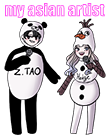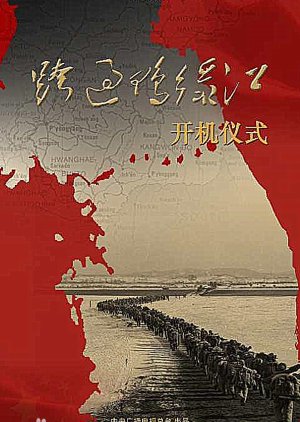Peng Dehuai carried out the pre-war mobilization, feeling that it was not easy for the Party Central Committee to make up his mind. He does not need to be afraid of the US military but must also be cautious. The Korean War is an international war, and they must seize the time to make war deployments. Xie Fang reported that transportation was the primary issue for the visit to North Korea. Too many large-scale operations in mountainous areas would cause difficulties, and the weather was too cold and logistics supplies could only be transported by China itself.
On the phone, Wilson blamed MacArthur for his stupid behavior in bombing Soviet airports. This would be the best excuse for the Soviet Union to join the war. And his act of crossing the 38th line at the same time would be considered a provocation to the Soviet Union. This move will bring unpredictable risks to the US government. MacArthur tried to use the navigation error as an excuse to prevaricate, Wilson could only pray that Stalin would not retaliate.
Xie Fang judged that it would take two hundred and fifty thousand to support the army’s secret crossing of the river at night. It would take three days at most and at least two days. The two divisions of Deng Hua’s troops have basically been prepared, but a few more days will be better. Time does not wait. The front line will move northward by tens of kilometers every night. Peng Dehuai only left Deng Hua for ten days. Logistics supplies are also facing problems.
However, Peng Dehuai ordered Hong Xuezhi to ensure that the logistics of 250,000 soldiers must be in place within ten days. The U.S. forces are advancing in two fronts, east and west, which shows that MacArthur is simply arrogant. Denghua and Peng Dehuai suggested that the command post should be established north of the Yalu River.
With a big wave of his hand, Peng Dehuai must establish the headquarters on the front line of the war. As a commander, he must grasp first-hand news. The secret of victory in the first battle is concealment, which lies in suddenness. Deng Hua has ordered all personnel who go to the DPRK to participate in the war not to expose their missions, otherwise they will be dealt with by military law.
The U.S. offered compensation to the Soviet Union on the grounds of navigation errors. They could not lose face in the Sukhaya bomb incident, but the U.S. sincerely expressed that they would accept it as soon as they get better. The Korean War must be confined to the region, otherwise it will be for everyone. No good. The US-Soviet competition is in Europe, and the air support to China is cancelled before it is ready.
The subordinates report to MacArthur. The Chinese army is gathering on the Yalu River, but MacArthur believes that this information was provided by Taiwan. This is a conspiracy by Chiang Kai-shek. Intelligence Kuwei Robbie believes that the Chinese army cannot be taken lightly, but MacArthur believes that China does not have an air force and they can only accept the massacre by the US army on the ground battlefield.
But obviously Willoughby didn’t believe his argument at all. He satirized MacArthur’s breathtaking speech should be told to all soldiers. Truman asked MacArthur to return home, but MacArthur blatantly refused to go back because of the tension in the Korean war.
Zhou Enlai and Lin Biao came to the Soviet Union to meet with Stalin in person. China had already ordered the dispatch of troops. The Soviet Union was unable to line up with the US military on the pretext of not causing international disputes. Lin Biao pointed out that China’s weak armed forces still need military help from the Soviet Union.
Stalin was silent for a while, suggesting that he should improve the equipment of the army while fighting so that he can seize the opportunity and improve combat effectiveness. Zhou Enlai said that the Chinese Air Force could not be put into use immediately after it was formed, but Stalin rejected the question about the air force on the grounds he had already thought of.
Peng Dehuai’s command of the Thirteenth Army has completed the investigation of the crossing point, and the Engineer Corps is making preparations to ensure that more than two hundred thousand troops quickly cross the river to prevent US bombing. Mao Zedong called suddenly, suspending the dispatch of troops, and ordered Peng Dehuai and Gao Gang to return to Beijing to talk.
Zhu De stopped the Soviet air force from leaving the station on the grounds that it was not ready. Peng Dehuai frowned instantly. This meant that China had to face the full-scale combat of the US army by land, sea and air alone. Once the war expands, Taiwan will be very passive if Taiwan intervenes. Liu Shaoqi pointed out that the national bourgeoisie is war-weary, which may cause turmoil. Zhu De also believes that to fight a war, it is necessary to guarantee victory. Mao Zedong ordered the volunteers to train in situ and arranged Liu Shaoqi not to give new explanations in the cadres and democracy.
Secretary Ye Zilong pulled Mao Anying who had just returned and told him that Mao Zedong hadn’t closed his eyes for three days, and that it was useless to take more than twice the usual sleeping pills today. At this time, only he could persuade the chairman.
Looking at his father who was smoking and coughing, Mao Anying hurriedly fetched water for him distressedly. He understood that his father was worried about the Korean War. Without the support of the Soviet air force, the casualties of the volunteers will inevitably increase. So many relatives, friends and children of the family have to go to the battlefield, and he can’t bear it.
Mao Anying knows the cruelty of war, but it is also the responsibility of the younger generation to defend their home and country. He is willing to go to the forefront of the Korean battlefield as long as there is peace. Peng Dehuai, who couldn’t sleep, came into the office.
He was going to see Kim Il Sung and turned back to Beijing. Mao Zedong asked him what he thought. Peng Dehuai is still determined to fight. As long as he opens up a base in a large mountainous area north of Wonsan and Pyongyang and annihilates several divisions of the South Korean army in one fell swoop, he can take the lead and produce a change that is beneficial to China.
Truman sent another telegram, hoping to meet MacArthur on Wake Island. MacArthur only needs to fly a quarter of the distance, but MacArthur made two conditions, to bring a journalist team from Japan and provide him with a faster flight. s plane. Acheson became angry. Could it be a meeting between the two heads of state and Truman’s refusal to lead the press delegation?
This will mislead the international community that the United States will make new major moves in North Korea. Acheson opposed making MacArthur a special existence, but MacArthur had been away from the United States for fourteen years, and Truman urgently needed to talk to him. Since the Incheon landing battle, MacArthur’s position in the Far East has been the emperor. Acheson reminded Truman that MacArthur was his political opponent. Truman firmly believed that MacArthur would not be so lucky soon.
The American, British and South Korean armies have assembled to attack Seoul. The two divisions of the North Korean army are blocked in the north and south, and most of the troops are contained in the south.
Mao Zedong discussed combat countermeasures with Peng Dehuai and others, suggesting that the two divisions of the Volunteer Army should enter the mountain areas first, and the other three armies and artillery divisions should enter the Xichuan, Qianchuan, and Jiangjie regions, making the enemy worry about buying time to intensify the training of the rear army.
Zhu De proposed that the enemy of Pyongyang could be contained, and the situation could be reversed if only one or two divisions could be eliminated. Mao Zedong reminded North Korea that its narrow position should be confronted by positional and mobile warfare.
At present, Peng Dehuai needs a Russian translator, but all his work is still in the confidential stage. The political trial of this person must be strict. Peng Dehuai proposed to find one from the Northwest Army, but Mao Zedong already had a candidate in his mind, and he took the initiative to invite Peng Dehuai and Zhu De to dinner together.
Zhu De was unable to attend the banquet because of his official duties. He asked Mao Zedong and Peng Dehuai to lead his army on the expedition, and whether there would be candidates to take over the job in the Northwest. Mao Zedong discussed with Zhou Enlai and Liu Shaoqi that Xi Zhongxun was in charge of the party, government, and military work. Peng Dehuai can now go to war with confidence.
Peng Dehuai looked at Mao Anying, who was sitting across from the dining table, and realized that the father and son were to join forces for their own army. He suggested that Mao Anying should just stay in the country and take charge of the construction of New China. However, Mao Anying recommended himself. He participated in the Great Patriotic War in the Soviet Union and had experience in wars.
Now the decision to send troops to North Korea is being questioned. Taking the lead to resist the US and aid Korea will greatly boost morale. Mao Zedong also interceded for his son, and Peng Dehuai had nothing to say at this point. Peng Dehuai asked Mao Anying to obey all his arrangements, and Mao Zedong took the wine to wish them victory.
Peng Dehuai came to see a few nephews and nieces, listen to their current situation and see their growth, and also gave the gifts he bought to the children, but tomorrow he will go to the battlefield again.

